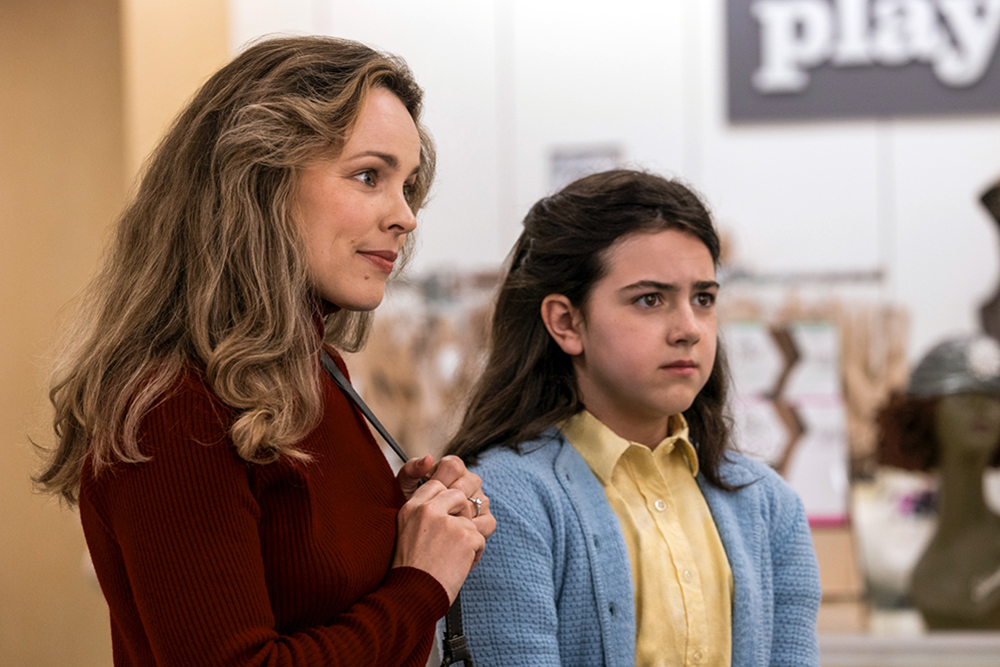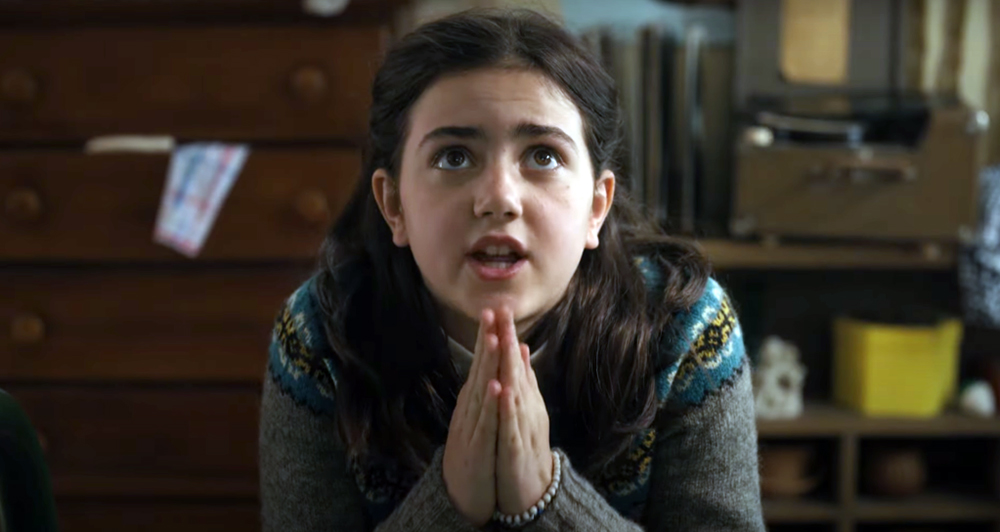Well, the book banners are at it again. Since the good ol’ U.S. of A. was founded by a diverse (from a theological perspective, anyway) group who had just witnessed a couple hundred years of bloody religious civil war in England, freedoms of belief and expression were enshrined as fundamental rights in the new country. So those who would impose their religion on others start by whipping up moral panics about “pornography! In the schools!”
Long before the words “Ron DeSantis” first passed fascist lips, they came for Judy Blume. Her 1970 middle-school coming-of-age novel Are You There God? It’s Me, Margaret. has everything: frank talk about sex, a skeptical view of religion, and worst of all, a female protagonist learning about her period. The horror! Children should know nothing about sex except that God hates you for it.
The bannings in the 1970s made it a widely read Gen X classic. Blume resisted offers from Hollywood until The Simpsons executive producer James L. Brooks and director Kelly Fremon Craig finally convinced her it was time to film the unfilmable.

We first meet Margaret Simon (Abby Ryder Fortson) having the time of her life at summer camp. When she returns home to her mother Barbara (Rachel McAdams) and father Herb (Benny Safdie), she’s quick to notice something is afoot. Grandma Sylvia (Kathy Bates) blurts out the news: Dad got a promotion and the family is moving from Brooklyn to the suburbs of New Jersey.
While the family is still unpacking, neighbor Nancy (Elle Graham) introduces herself. Margaret is attracted to her new friend’s self-confidence, and she gets a boost when Nancy asks her to join her girl gang. But navigating her new school’s social scene becomes Margaret’s minefield.
Meanwhile, a long-simmering situation in Margaret’s family life is coming to a boil. Barbara’s Christian fundamentalist parents disowned her when she married Herb, who is Jewish. Margaret must choose which religious tradition she wants to join, if any. Margaret prays her own way in private, and her missives to God give the film narrative structure. When Margaret finds out why she’s never met her grandparents, it fills her with horror — the more she sees of religion, the less she wants to do with it.
Craig nails the feel of the wood-paneled 1970s. Her technique is conservative, compared to The Diary of a Teenage Girl and Eighth Grade. It’s the acting that sends this adaptation into greatness. Fortson’s performance is wise beyond its years, and Graham’s a natural. Craig’s screenplay increases the role of Barbara, and McAdams makes a meal of it.
Margaret’s choices — to be a mean girl or not; to be Jewish, Christian, or none of the above; to be fake and popular or risk being real; being forced to choose between competing branches of her family — are so universal that they transcend the 20th-century setting. What has scared the pearl-clutching book banners for 50 years is that Margaret makes her own choices for her own reasons and lives more or less happily ever after. That kind of freedom is not something the reactionary mind welcomes.
Are You There God? It’s Me, Margaret.
Now playing
Multiple locations
